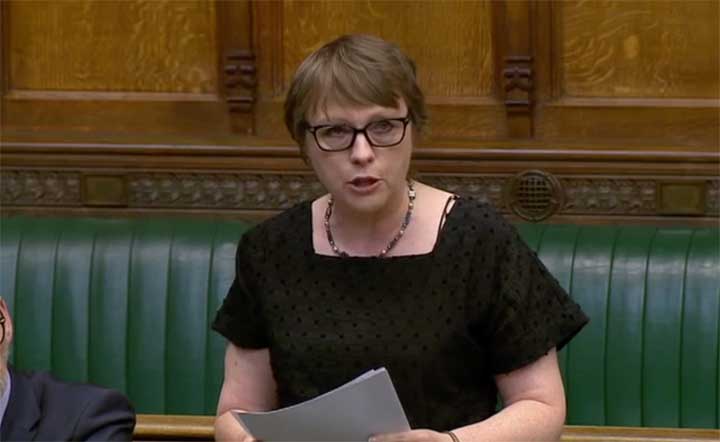
Commons debate, July 11
Maria Eagle, Labour MP for Garston and Halewood, questioned in the Commons whether ground rents are now so onerous the property qualifies as an Assured Short-Tenancy – an ordinary rented property.
This issue has been addressed by barrister Rawdon Crozier at various property conferences.
The law firm Mischon de Reya, Maria Eagle said, has argued that above £250pa and £1,000pa ground rents in London mean the property is an AST under the Housing Act 1988.
“I find this shocking: where ground rents escalate, the leases are likely in time to come to fall into that category of assured shorthold tenancy, and such tenancies are designed to be the least well protected.
“Assured shorthold tenancies can be relatively easily terminated, and therefore the lease forfeit by the landlord or freeholder. In most leases there are provisions, which are quite draconian, for that to happen. Because assured shorthold tenancies allow relatively easy termination, the 1988 Act gave courts the right to grant relief, cancelling the forfeiture if the rent was paid.
“However, the power to grant relief does not apply to assured shorthold tenancies if at least three months’ rent is more than three months overdue. In such circumstances, forfeiture must be ordered by the court. That raises a terrible prospect of home owners losing their homes simply because they did not realise this had happened.”
The observation is revealing that some MPs – Maria Eagle, Clive Betts, Bob Blackman among them, and our patron MPs of course – are now extremely well informed of leasehold issues.
These have been always there in constituencies up and down the country, but owing to the greed and predatory ambitions of plc house builders – let alone the parasitic and pointless ground rent speculators (often offshore) – they are now desperate and urgent.
As a result, Maria Eagle said:
“Homeowners who have bought newly built houses in my constituency—and there are many hundreds of them—thought that they were buying their own homes. Technically and legally, they were buying a lease, a type of tenancy, often a long one of up to 999 years, which has left them with a landlord, the freeholder.
“Many property development companies and finance companies are treating the freehold reversionary interest on houses on these estates as a financial asset to be exploited to the full, with no regard whatever for the leaseholders and the families they are exploiting mercilessly. They see families in my constituency as nothing more or less than a long-term financial asset to be squeezed to the maximum for cash.
“There is no reason at all to sell a leasehold house. There is only any point in selling a house as leasehold to make it into a financial asset to squeeze into the far future. Yet in the north-west, 69% of newly built houses in 2016 were sold as leasehold properties. There are already more than 1 million leasehold houses in England and Wales, so what is happening now to my constituents and other home buyers in the north-west is happening elsewhere—perhaps at a lower level, but it is happening.”
The full debate can be read here:





 Developers moderating their cheating makes it worse for leaseholders who are trapped, says Fiona Bruce MP
Developers moderating their cheating makes it worse for leaseholders who are trapped, says Fiona Bruce MP





















